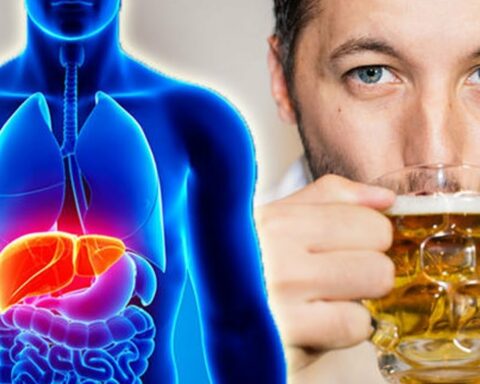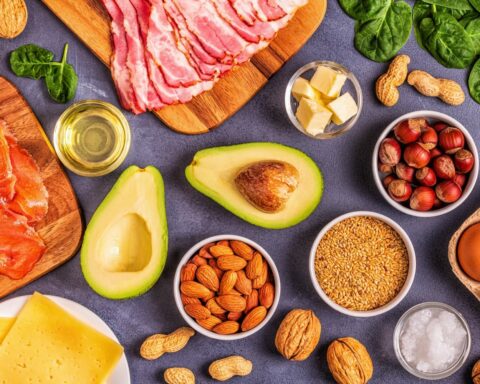Milk has all the nutrients a newborn needs to survive, which is why mammals depend on it over their first few months of life.
Milk is among the earth’s most nutritious foods, and all mammals depend on milk for their survival for the first few months of life. Milk has almost all the nutrients a newborn needs to grow. Fats, carbs, proteins, fiber, calories, and vitamins are found in milk in considerable amounts. This article helps you understand all you need to know about cow’s milk since it is the most common form of milk. You will also learn the health benefits and the small problems associated with cow’s milk.
The nutritional profile of milk
In rating foods and dietary components, nutritionists and dietitians focus on the nutritional profile. Milk has a complex nutritional profile, consisting of almost all the nutrients our bodies need. Whole milk has a 3.25% fat content. Its cup of 240ml comprises the following nutrients in the following proportions; fiber 0g, sugar 12.3g, protein 7.7g, fat 11.7g, 149calories, and 8g carbs.
Milk proteins
Milk (including cow’s milk) is one of the richest foods in proteins. Milk proteins are considered to be among the best forms of proteins. Milk proteins are grouped into two; soluble proteins called whey protein, and insoluble proteins called casein. Both are readily digestible and have good proportions of amino acids, which are the building blocks for proteins.
- Casein
Casein refers to the insoluble milk protein, which constitutes about 80% of the proteins in milk. This form of protein is popular for increasing phosphorus and calcium solubility in the body. Casein also helps keep blood pressure low, as indicated by most studies. Milk casein has an entire family of proteins, but alpha-casein is the main form of protein casein.
2. Whey proteins
Whey proteins are soluble proteins found in milk. They majorly consist of branched-chain amino acids (BCAAs) and include valine, isoleucine, and leucine. You might have noticed that people actively involved in sports, bodybuilders, and athletes take whey supplements. This is because whey boosts muscle strength and mass. Some studies have also linked it to reduced stress and mood swings, and lower blood pressures.
Milk fat
The fat content of milk is often used in marketing it, with skim milk, 1%, 2%, and 3.25 (whole milk) having 0g, 2g, 5g, and 8g of fat, respectively. A cow’s milk fat is unique, comprising about 400 different types of fatty acids. In cow’s milk, saturated, monounsaturated, and polyunsaturated fatty acids make up 70%, 28%, and 2.3%, respectively. There are also trace amounts of trans fats in the milk fat, primarily known as ruminant fats. Although there are many concerns with consuming trans fats in processed foods, cow milk’s trans fats are generally safe and may even have health benefits. Still, studies are mixed, with some claiming that they may harm metabolism.
Carbs
Apart from fats and proteins, cow’s milk contains carbs. These carbs are present in the form of lactose, which is broken down to galactose and glucose in the human body and stored in the liver as glucose. When the body needs energy, metabolism breaks down the glucose to release heat energy.
Milk and minerals
If you thought that only veggies and fruits are rich in vitamins, you are wrong. Milk also has crucial minerals and vitamins, which is why it can sustain a young calf when it’s born. The vitamins and minerals are beneficial to human beings too. Here are some minerals and vitamins in milk;
- Calcium; this is needed for strong bones and teeth and is found in plenty of milk, and is easily digestible.
- Vitamin D; can be found in vitamin D-fortified milk
- Vitamin B12; this form of vitamin is usually found in animal-based foods, and milk harbors lots of it.
- Phosphorus; this mineral is crucial for many biological processes, and milk contains high amounts of it.
- Vitamin B2; this is yet another complex vitamin, with milk products being its biggest source.
- Magnesium, potassium, and other minerals are also present in milk, though in trace amounts.
Is milk beneficial to humans?
Dairy products have been popularized, thanks to the many health benefits milk has. They include;
Bone strength and mass development
Many adults suffer from osteoporosis, a common form of arthritis that causes bone density to decrease as the years advance. Studies have proved that taking milk could help with this condition. In a young calf, milk helps the bones to develop, and it has the same effects on human beings due to its high amounts of calcium, phosphorus, and proteins.
Low blood pressure
Heart disease is among the world’s top killer diseases, besides diabetes and cancer. One of the risk factors of heart disease is high blood pressure, and researchers are putting forward every effort to combat it. Drinking milk could help lower blood pressure and reduce the risk of heart disease. As casein breaks down, it releases peptides that might be responsible for low blood pressure. Still, magnesium, calcium, phosphorus, and potassium in milk could also help lower blood pressure.
Adverse effects of milk
The previous sections have shown how beneficial milk can be due to its rich nutritional profile. Still, there are adverse effects associated with its consumption. These include;
Lactose intolerance
Lactose is the main sugar found in milk. When you take milk, lactose is broken down to glucose and galactose, further converted to glucose, and stored in the liver. However, some people cannot digest lactose and suffer from its intolerance. Such include diarrhea, vomit, feel nauseated, and bloat after taking milk.
2. Mil allergy
Some people are allergic to milk and will have blood in the stool, diarrhea, skin rashes, and swelling once they take milk or its products. This allergy is majorly due to alpha-lactoglobulin and beta-lactoglobulin, two forms of whey protein. In some cases, casein can also cause milk allergy in young children.
3. Acnes and cancer
Milk has about 50hormones, including the insulin-like growth factor-1 (IGF-1), which is associated with acne in some people. Studies are mixed about the relations between milk and cancer. Some claim that milk increases the risk of prostate cancer, while others claim that it improves colorectal cancer.
Conclusion
Milk is one of the most nutritious foods there are. It contains most of the nutrients the body needs, which is why it can sustain the young one during the first months of life. Peer into this article and know everything about milk.
Credits
We would like to thank the below contributors who have helped us to write this article:
- WHY CAN DRINKING ALCOHOL TRIGGER ANXIETY? - January 7, 2023
- WHAT IS ORGASMIC MEDITATION? BENEFITS + HOW TO - January 7, 2023
- THE BEST WAYS TO PREVENT WEIGHT GAIN THIS WINTER - January 6, 2023









